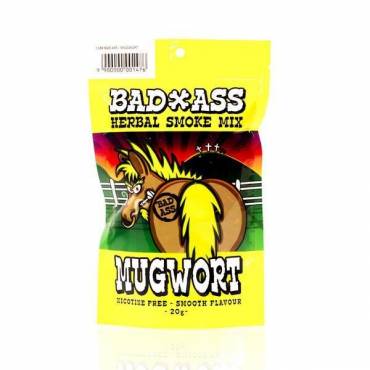A Primer On The War Of Drugs. Eric Garner was under arrest On July 17, 2014, in New York. They suspected him of selling cigarettes. The police officer put him into a chokehold, although the NYPD had banned that retrain back in 1993. He died due to suffocation, and his death was considered a homicide.
The tragic death of Eric Garner broke the protests across the USA. People were aware that it was not only Eric Garner who died at the hands of the police department. It was a part of the design where black Americans were a target. Police tried to normalize such situations by declaring it a war on drugs. Before going further, it is necessary to know what is the war on drugs.
War on Drugs:
US federal government started a campaign against the illegal drug trade known as the war on drugs. They designed this campaign to stop drug trafficking. However, this practice has caused more damage than any good. We are going to have a look at how this war on drugs evolved over the years.
1970s:
A Primer On The War Of Drugs. The war on drugs began in June 1971 when President Richard Nixon declared drug abuse to be “public enemy number one.” He increased funds to fight against this new enemy. Nevertheless, he also created the Drug Enforcement Administration (DEA) back in 1973. The DEA administered all the laws on all drugs, including marijuana.
John Ehrlichman, who was Nixon’s advisor, spoke about the former president’s real “public enemy number one” back in 1994. He explained that it was not the drug. Black people were the main target. John Ehrlichman explained to journalist Dan Baum, “The Nixon campaign in 1968, and the Nixon White House after that, had two enemies: the antiwar left and black people. Do you understand what I’m saying? We knew we couldn’t make it illegal to be either against the [Vietnam] war or black. However, by getting the public to associate the hippies with marijuana and blacks with heroin and then criminalizing both heavily, we could disrupt those communities. We could arrest their leaders, raid their homes, break up their meetings, and vilify them night after night on the evening news. Did we know we were lying about the drugs? Of course, we did.”
1980s:
Ronald Reagan ruled the USA for almost a decade. People were unaware that the truth behind the slogan “Just say no!” was not about drugs but about putting black Americans in jail. 83% of convicted people for drug trafficking were black. According to a 2015 Drug and Alcohol Dependence report titled “Powder Cocaine and Crack Use in the United States: An Examination of Risk for Arrest and Socioeconomic Disparities in Use.”
Anti-Drug Abuse Act passed in 1986. These prisoners subjected to mandatory minimum prison sentences. Unfortunately, the sentence stuck as compared to the sentences given to white drug traffickers.
1990s:
President Bill Clinton continued the zero-tolerance policy. LA Times in 1995 said that President Bill Clinton rejected the US sentencing commission’s recommendation to close the incarceration gap between crack and cocaine users. Human Rights reported back in 1999 that the blacks were more in numbers under arrest on drug charges. The Human Rights Watch stated, “The disproportionately high percentage of blacks among those admitted to state prison on drug charges is cause for alarm. Nevertheless, the disparity in the rates at which black and white men over the age of eighteen sent to prison on drug charges was wrong.
2000 to 2010:
President George W. Bush took office at the dawn of the 21st century. He put more money than ever before to fight the war on drugs. He is the one who is responsible for the militarization of police forces across the country. When he left his office, suspected individuals of illegal drug use had climbed to 40,000 annually.
2010 to 2020:
President Barack Obama also spent ten years in office. During all those years, he granted 1,715 sentence commutations to minor drug offenders. In an article in Washington Post, they revealed that on his last day, he issued 300 commutations on January 19, 2017.
As soon as Obama completed his tenure, marijuana reforms have gain momentum. Many states are voting in favor of the legalization of it for recreational and medical purposes. However, the Drug Policy Alliance reports that despite this progress, more than half a million individuals remain in prison for marijuana-related offenses, 90% of which involved non-violent possession.
Effect of War on Drugs on society:
A Primer On The War Of Drugs supports racism, considering that this war on drugs is against minorities, especially against Blacks. According to a 2017 report published by the United States Sentencing Commission, black American men are receiving more prison sentences than white men who commit the same crime.
Center for American Progress reported that back in 2016, 500,000 people in the United States arrested on the charges of marijuana-related crimes. The organization further stated that Black Americans are four times more likely to be arrested for marijuana possession than white individuals. However, both racial groups use cannabis at comparable rates.
Ways to fight for justice in the War on Drugs:
If you want to fight for justice in this war against drugs, you can join the following forces.
American Civil Liberties Union (ACLU):
ACLU is fighting since last 100 years just to protect the rights of every individual. This organization specially focuses on the imbalance war on drugs.
Drug Policy Alliance:
This organization was founded back in 2000 in New York. It is a non-profit organization playing its part to protect people imprisoned for drug offenses during the COVID-19 pandemic.
National Association for the Advancement of Coloured People (NAACP):
This is considered to be the well-established civil rights organization in the United States. A group of luminaries including Black American writer and sociologist W.E.B. Du Bois founded this organization back in 1909.
We recommend this Chongz Beam Me Up Scotty Glass Bong 40cm



Add Comment